Illuminating Design: A Conversation with Paul Nulty on the Future of Lighting
Design Insider is excited to share an enlightening conversation with Paul Nulty, founder of the award-winning lighting design consultancy Nulty, which has left a luminous mark on global landmarks and brands. Our Editor, Alys Bryan, sat down with Paul to discuss the transformative power of lighting design and the future direction of Nulty and its subsidiaries, Studio N and Nulty Bespoke.
Paul’s journey from theatre design to pioneering Nulty highlights his passion for using light to define and enliven spaces. He touches on the consultancy’s growth and how changes in technology, wellness, inclusivity, and sustainability have reshaped their approach to lighting design. Paul discusses the subtle art of lighting design that enhances spaces unnoticed, the influence of trends like blended travel on hospitality lighting, and the push towards sustainable and inclusive design practices. Paul also shares his views on AI in design, seeing it as a tool that aids but cannot replace human creativity.
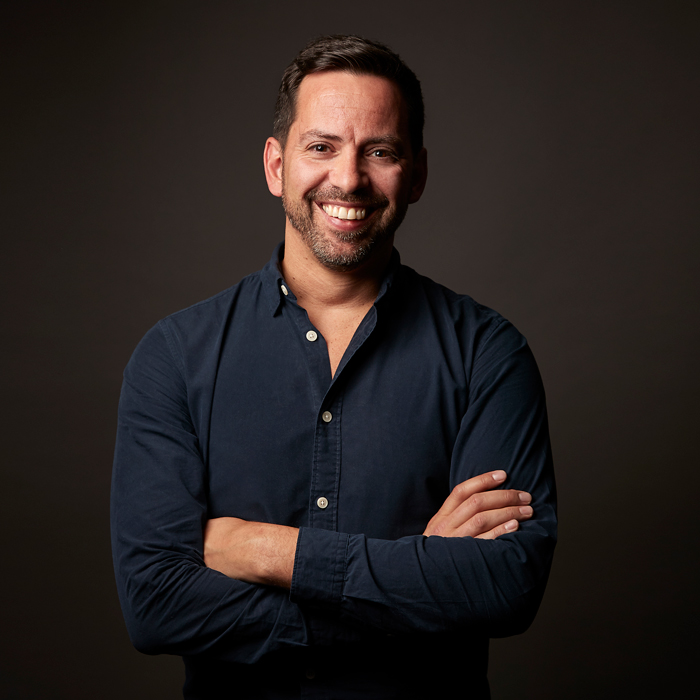
Paul Nulty, Founder of Nulty
Alys Bryan: Could you start by sharing a brief introduction about yourself, your role and your business.
Paul Nulty: I’m the Founder of Nulty, an award-winning lighting design consultancy with a global-wide team of over 100 designers. We’ve designed lighting schemes for brands like Nike, Selfridges, and Samsung, and iconic buildings including Harrods and Burj Khalifa. I started out in theatre design where I developed a passion for light and its power to define a space. It opened me up a whole industry that I didn’t even know existed and prompted a career shift to lighting design. Nulty was born in 2011 with me and a laptop at my kitchen table, then grew quickly to become a small, close-knit team in London. We went global with the launch of our Dubai office four years later and have since added five more studios. My role evolves as the business grows, but ultimately my goal is to ensure that our practice is synonymous with boundary-pushing lighting design.
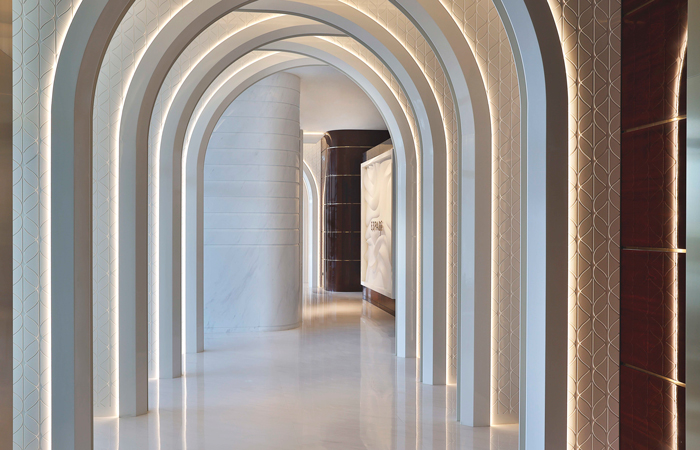
Waldorf Astoria Lusail Doha ESPA Life Spa. Photo Credit: The Waldorf Astoria
AB: How has your studio evolved since your launch in 2011? Can you highlight any significant shifts in your ethos or methodology over the years?
PN: At its most basic level, lighting design hasn’t changed since I set up the practice – we use light to breathe life into a space and emotionally connect people with that environment. But our role has shifted in other ways because the world is a very different place. Luminaire technology has created huge scope for creativity, personalisation, and efficiency. The sectors that we work in are also in a state of flux, partly due to the rise of experiential design and partly in response to broader issues like wellness, inclusivity, and sustainability. It’s a challenging time to be a designer because projects are more complex, but it’s also an exciting time to be a designer because every project is an opportunity to learn and grow.
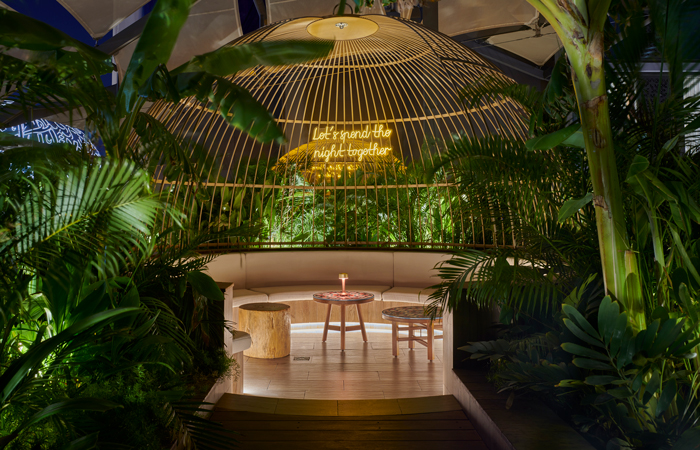
25hours Hotel Dubai One Central Terrace. Photo Credit: Chris Goldstraw
AB: What is the aspect of being a designer which drives you, which makes your heartbeat faster?
PN: The paradox of being a lighting designer is that if we do our job properly, a space should come alive without anyone noticing the lighting. Our lighting interventions are often integrated into the fabric of a building, so the boundaries between architecture and lighting fall away. What you’re left with is beautifully illuminated surfaces, the interplay of light and dark, contrast, ambience, and drama.
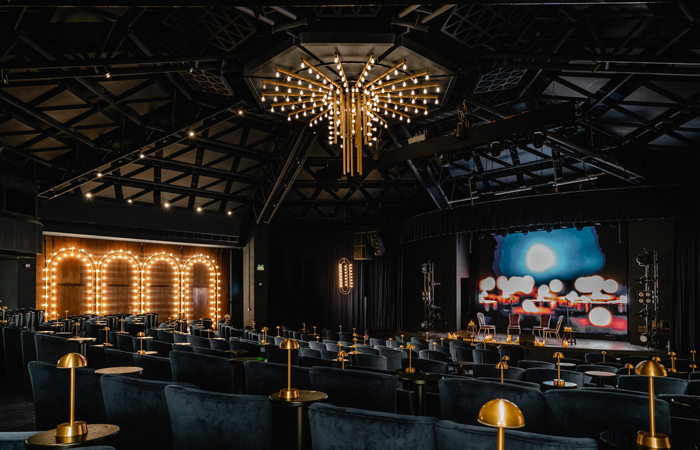
Heythrop Park Hotel Theatre Landscape. Photo Credit: Stevie Campbell
It’s a delicate art form and I love the fact that we can influence a person’s daily life on an emotional level without them being aware of the hard work that’s gone on behind the scenes. It’s why the commissioning stage of a project is the goosebump moment for me – the obsessive detailing comes to fruition, and you get to switch the lights on and see the space slowly spring to life.
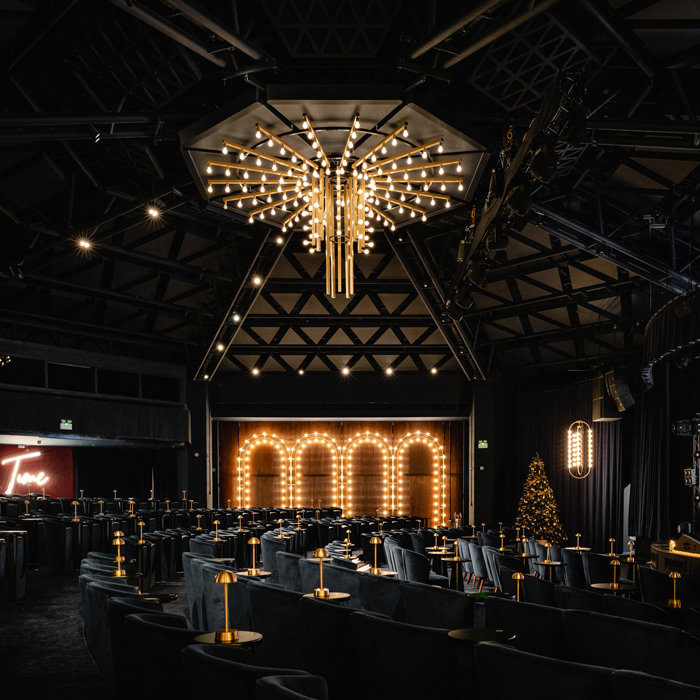
Heythrop Park Hotel Theatre Landscape. Photo Credit: Stevie Campbell
AB: With the emerging trend of blended travel and increased social interaction among next-gen travellers, how do these preferences influence your approach to lighting design?
PN: The hospitality sector has always been ahead of the curve when it comes to responding to trends. The onus is currently on how we deliver a multifaceted experience because people’s expectations for travel are more diverse than ever. Wellness is often the backbone of a hotel experience, coworking spaces are being embedded into communal areas, and F&B spaces need to metamorphous at the drop of the hat. Lighting design is having a moment as a result because of its capacity to make things more emotionally changeable. We can create a beautiful aesthetic with layers of light and pull on these strings to change the look and feel of a space.
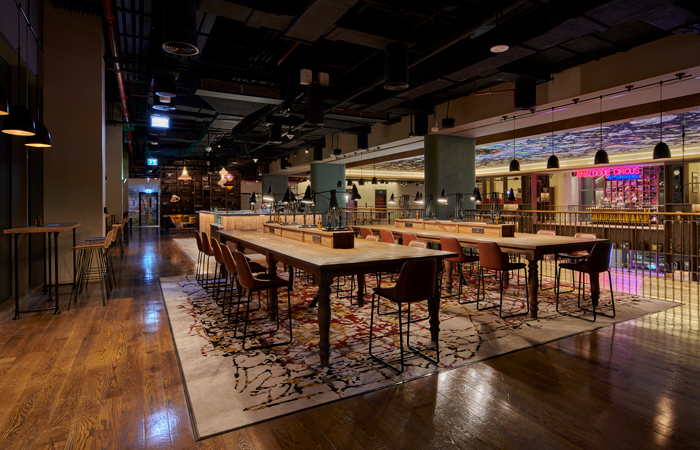
25hours Hotel Dubai One Central Coworking. Photo Credit: Chris Goldstraw
AB: Besides the blended travel trend, are there other emerging trends in the hospitality industry that are shaping your lighting designs? What future trends do you foresee impacting your work?
PN: The trends that will shape hospitality design are the same macro trends influencing other sectors, namely the rise of a health-conscious and sustainability-minded end user. This shift is pushing us all towards a more holistic approach to design, where the outcome we’re looking for is a happy and healthy environment, and a process that is as circular and carbon efficient as it can be. We’re also more informed about the need for more inclusive schemes that cater for a range of needs and different styles of thinking. Neurodiversity is an important consideration in a people-led sector like hospitality because humans process visual information in different ways. We need to strive for better awareness, and design balanced schemes that offer areas of visual respite for those who are hypersensitive to light, glare, flicker, and patterns.
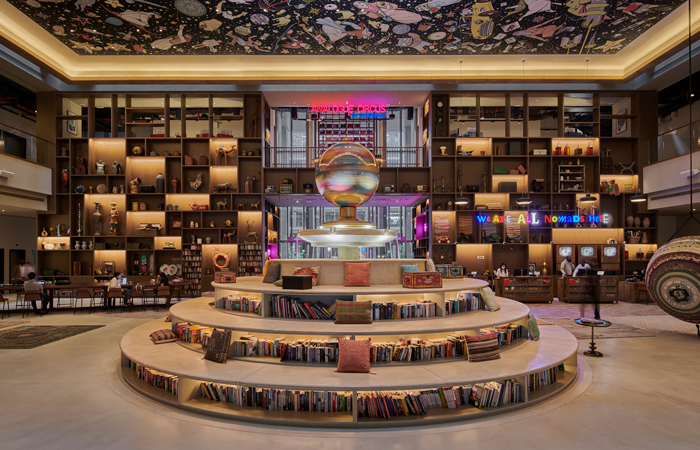
25hours Hotel One Central Dubai Lobby. Photo Credit: Chris Goldstraw
AB: In your perspective, what are the five key considerations that are central to effective and impactful lighting design?
PN: It’s always been difficult to summarise the essence of good lighting design because light is an intangible material. This ambiguity has been complicated further by the fact that schemes now come with a lengthy list of considerations. How we prioritise this list varies from project to project. But there is a common denominator on all projects that dictates the design outcome – the people that will use that space. It’s why we always take the time to step back and unpick the design narrative. What are we trying to say with that space? Who is the scheme intended for? How will it be used? We design for people that will inhabit a space, and when we get this part right, we’re more likely to achieve a successful scheme.
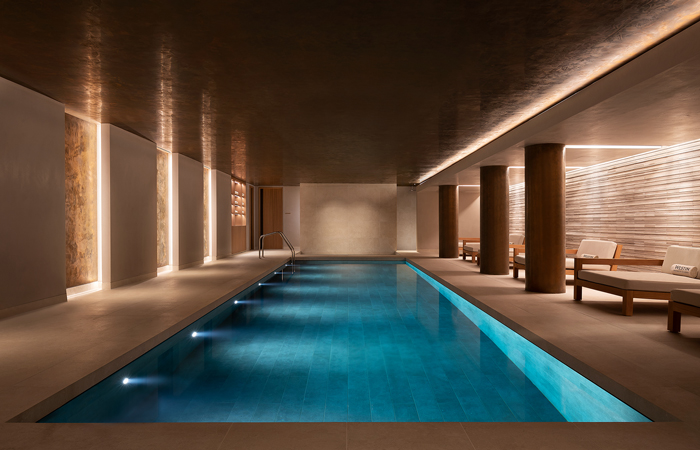
The Westin London City Pool. Photo Credit: The Westin
AB: During 2024 we have a focus on AI, does your studio incorporate AI tools in its research, design, development, or administration processes? Additionally, what are your thoughts on the use of AI in design, particularly within the commercial sector?
PN: It’s still too early to say what impact AI will have, but I don’t think that it will ever design for us entirely. AI will never be able to visualise a building in the way that an architect can, and it will never make a space resonate on a personal level like a lighting designer does. Right now, when it’s only good as what it’s been taught or programmed to understand, AI can play a supportive role, but it can’t pull all the different threads of project together. We should be using it to simplify our internal processes to free up more time to think, be creative and solve problems.
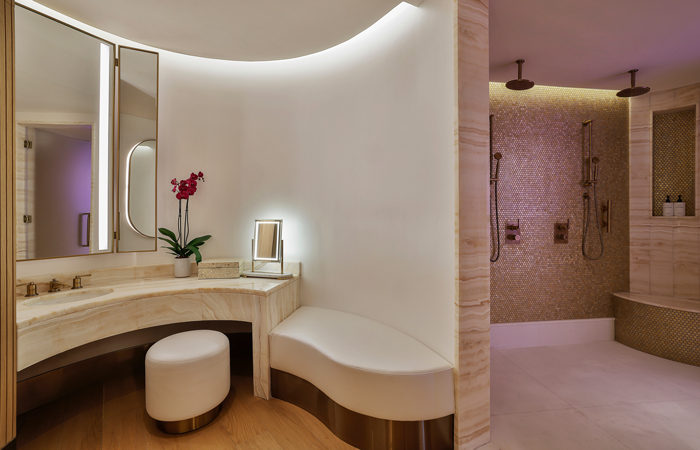
Waldorf Astoria Lusail Doha ESPA Life Spa Treatment Room. Photo Credit: The Waldorf Astoria
AB: What does the future look like for your studio, and your two subsidiary brands, Studio N and Nulty Bespoke?
PN: We’re looking ahead to a period of growth for all three companies. For Nulty, we want to consolidate our position as a market leading brand and continue to build strong clients relationships in key markets. Studio N is celebrating five years in business and a run of award wins, so we’re looking forward to ramping things up a gear and opening new offices to support our teams in London and Dubai. And lastly, Nulty Bespoke will continue to grow its portfolio of beautiful bespoke designs, while exploring creative and experimental ways of working with form, materials, and light.




